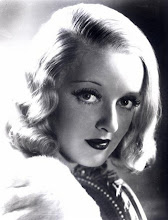In actuality, the film is a series of takes about six minutes long, because at the time the film was shot that was the longest take possible. Hitchcock gets around this by using a handheld camera that follows the characters around; every six minutes or so, it just happens to come up against the back of someone's jacket or a chair or something else that's solid, giving him the time to change reels while still making the cuts completely invisible.
One very interesting shot that results from this method is that an important conversation takes place entirely offscreen. Brandon and Phillip have killed a classmate of theirs, David, and hidden his body in a large trunk in their living room, which they cover in a tablecloth and use to serve dinner at a party to which they've invited David's parents, his girlfriend, and their old schoolteacher.

Naturally, everyone is concerned when David doesn't make an appearance, but the party goes on without him (at least, as far as the other guests are aware). After they have effectively eaten off of the young man's makeshift coffin, everyone moves over to a large seating area, but the camera remains on the trunk. We hear the party guests discuss once again David's possible whereabouts, while watching the maid, Mrs. Wilson, clear dishes off of the trunk in which we know David's body is hidden; among the guests, only Jimmy Stewart, as the schoolteacher who gave his young students the (purely theoretical) idea to kill in the first place, is visible at the edge of the frame. This juxtaposition of audio and visual information creates the very tension that gave the Master Of Suspense his nickname.
The philosophical arguments presented in the film are compelling enough to make up for the lack of variation in camera work. The teacher, Rupert, postulates that a select group of superior human beings should have the right to kill those who are inferior. His reasoning is cold and academic; it is Brandon and Phillip who decide, arrogantly, that they fall into that "superior" category, and moreover, that Phillip is decidedly inferior. Once he sees how his rationale would be applied out in the real world, Rupert is appropriately horrified -- and yet, still coldly logical enough to deduce that his former students were the ones behind their classmate's disappearance.



This is a great movie that tends to get a lot of attention for its gimmickry, so I'm glad that you consider its thematic and emotional components as well. I love its typically Hitchcockian dark humor, and the way the flowing, constantly moving camera moves through these rooms, intersecting different conversations and exploring the shifting moods of the guests over the course of the night.
ReplyDeleteLove this film! I enjoy movies that utilize very long takes and depend on movement from within the frame to tell a story, so I enjoy it a lot. Great performances as well.
ReplyDeleteAlways been one of my very favourite Hitchcocks. I think the single take technique works really well (apart from the reel changes) and I love Stewart's totally untypical performance, both his cynicism at the start and his fury at the climax.
ReplyDeleteOne thing has always puzzled me, though: there are a couple of cuts to close-up towards the end that completely violate the invisible camera idea. Were these done later? Or were they always there? Has anyone seen a version without them???
Caitlin,
ReplyDeleteI enjoy the freshness of your writing very much and have found myself unable to turn away from "Rope" whenever it appears, relishing Dall, Granger, Stewart and particularly Edith Evanson's role housekeeper in this unusual Hitchcock film.
I am also stopping by today to let you know that you have been awarded a Kreativ Blogger Award,(please pardon the spelling, it arrived on my blogstep with that eccentric spelling). You can see details of this award here.
All the best,
Moira
.